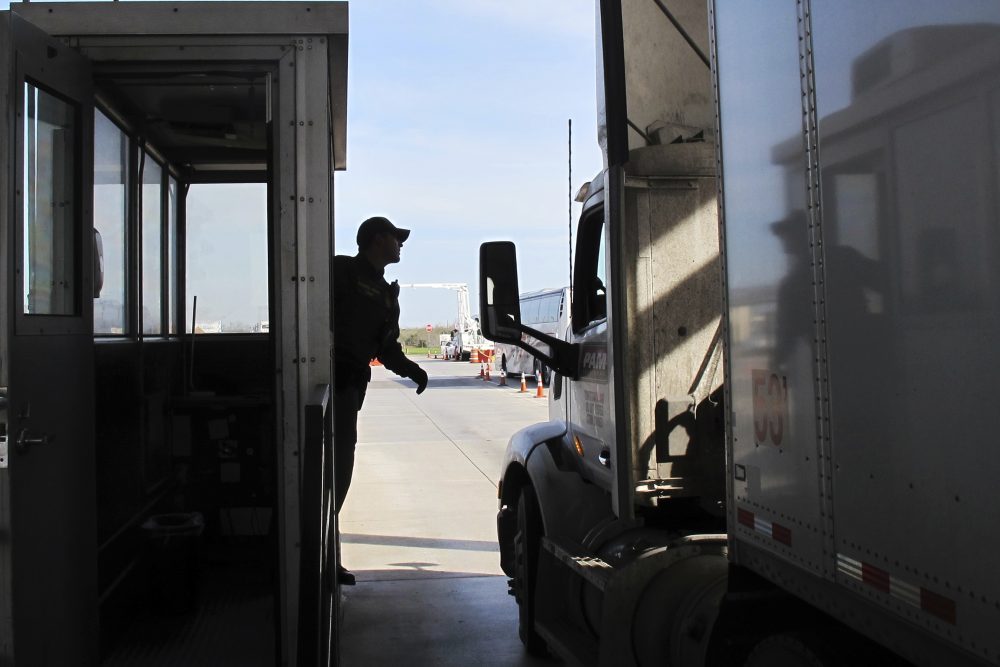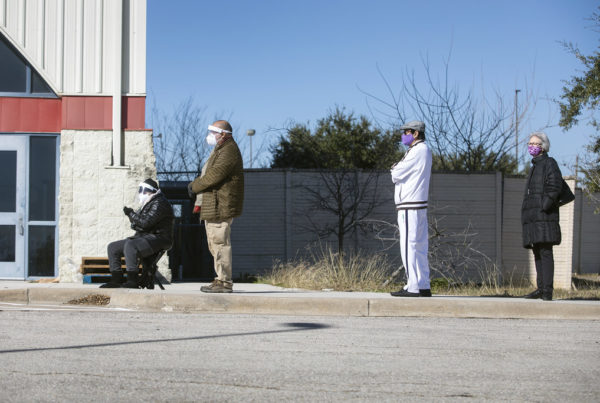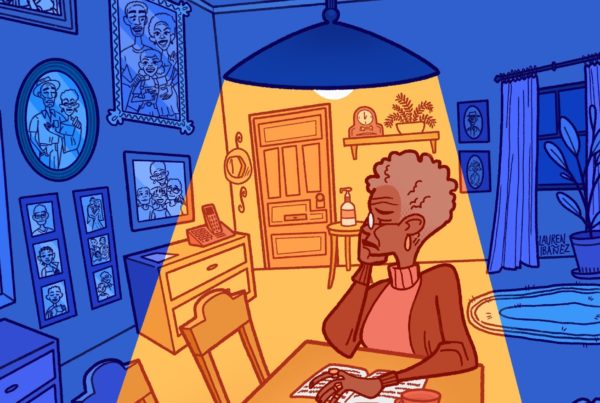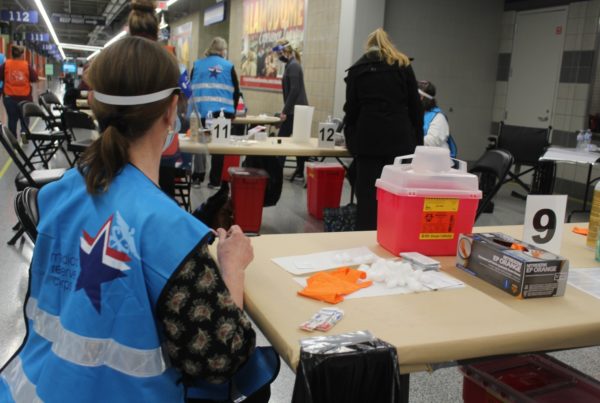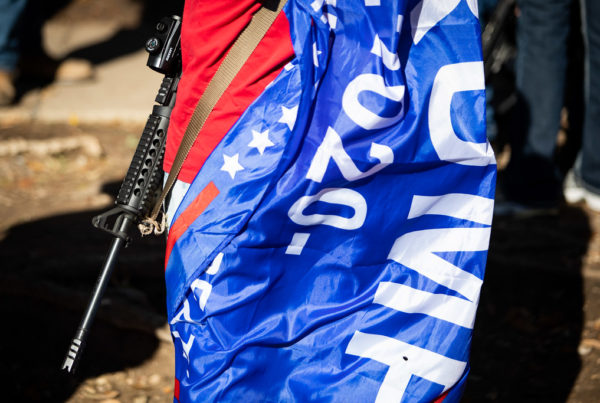Rene’s plan to come to the United States started like the journeys of thousands of other Central American migrants: gang threats for money.
In August, he left his home country Guatemala with the help of a coyote — a smuggler — and promised to pay off his debts through work, Rene told Houston Public Media.
But what began as an at-will smuggling attempt, quickly escalated into a full-blown kidnapping, the man said. Rene was one of 29 migrants held in December’s high-profile human smuggling bust.
What followed was a tale of escape, arrest, and ultimately, a familiar outcome: migrants caught up in an immigration system that now threatens detention and deportation.
‘We Were Like Dogs’
During his four-month journey from Guatemala, Rene — who asked to use his middle name out of fear for his life — said he was stuffed with other migrants into a truck in Mexico. Next, he was held prisoner for several weeks inside homes in Matamoros, Mexico and Brownsville, Texas. Then he walked through the South Texas terrain for five days.
“Many were wanting to escape, but they couldn’t,” he said in Spanish.
Armed men forced them to keep walking.
“A gun is faster than oneself,” he said.
During the five-day trek, people in his group collapsed and were too weak to continue. He said he remembers leaving four people behind, like a 60-year-old man with a bad leg.
The group reached a road where a car met them and Rene said he was forced into the trunk, which took them to Houston, considered a well-known hub for human smuggling.
At the stash house in Southwest Houston, Rene said he slept with 20 other people in a room. He said they were forced to strip down to their underwear, and share one bathroom where they used the faucet for water. He remembers eating one small meal each day with their hands — rice with pieces of chicken.
“We fought over who could eat more we were so hungry,” Rene said, “We were like dogs.”
He said armed men kept them from leaving, shuddered windows obscured the outside world and kidnappers left the lights on 24-7, making it difficult to know how many days had passed.
“There was a woman that met them there, they called her ‘la flaca,’ the skinny one,” said Houston immigration attorney Leslie Kirby, who recorded the story of another one of the migrants inside, named Jose.
Jose told her that “la flaca” would write down the migrants’ names and ask for the phone numbers of their family in the United States.
“She told them that if the family members did not pay the money that they demanded, that they weren’t going to leave the house,” Kirby said.
Then, on the night of Dec. 3, one of the men escaped in a residential neighborhood. Neighbors, who saw him running down the street in his underwear, alerted Houston police.
Southwest officers are at 4800 Raven Ridge. Officers received a report of a male in his briefs running down the street yelling that he had been kidnapped. The male advised that thirty more people were being held hostage in the house. Officers made entry and rescued approximately pic.twitter.com/kRWS89zuUy
— Houston Police (@houstonpolice) December 4, 2020
Houston police have responded to three high-profile human smuggling busts in the past six weeks. Two of them involved migrants being held against their will, according to Houston Police Department Commander Kristine Anthony-Miller.
“I’m sure that this unfortunately happens more often than we would like to think,” Anthony-Miller said.
Many families will just pay the money to see their loved ones, without alerting authorities, she said. And just because an individual was willingly smuggled, doesn’t negate the fact that it’s kidnapping.
“If you’re held against your will, until you give a ransom, that’s kidnapping,” Anthony-Miller said.
Facing Hard-line Immigration Policies
The 29 migrants from Central America, Cuba and Mexico may all be kidnapping victims, but their fate depends on luck and the discretion of immigration authorities, who increasingly have detained and deported migrants under the Trump administration.
Immigration lawyers said this group could qualify for what are known as “U visas,” which protect some crime victims from deportation if they are willing to cooperate with law enforcement.
But those visas can take five years or more to process. And migrants don’t have a right to an attorney in ICE detention, which is where these 29 victims landed after the bust.
In this special case, pro bono attorneys in Houston volunteered to represent them. Some were successful. For others, it was too late.
Take what happened to Jose. His attorney, Leslie Kirby, was unnerved when she said he told her he saw the man charged with his kidnapping in the same ICE facility.
“He sees him on a daily basis even though they’re not in the same group,” she said. “He’s able to see him through the glass.”
Jose’s family tried to get him released. But ICE denied the request. He’s already been deported back to Mexico, along with other migrants found at the stash house.
Things are looking brighter for Rene. After a month in immigrant detention he’s finally free in the US.
He’s going to try to get asylum or a U visa. But both options are difficult and take years, all while his wife and four children remain in Guatemala. Rene will be living with family in the Chicago area while his immigration case is pending.
He said for now his family is grateful he’s alive.
“Even though I’m not there, with our video calls they see me and we spend time together,” he said. “They can’t imagine what life would be like without me.”


